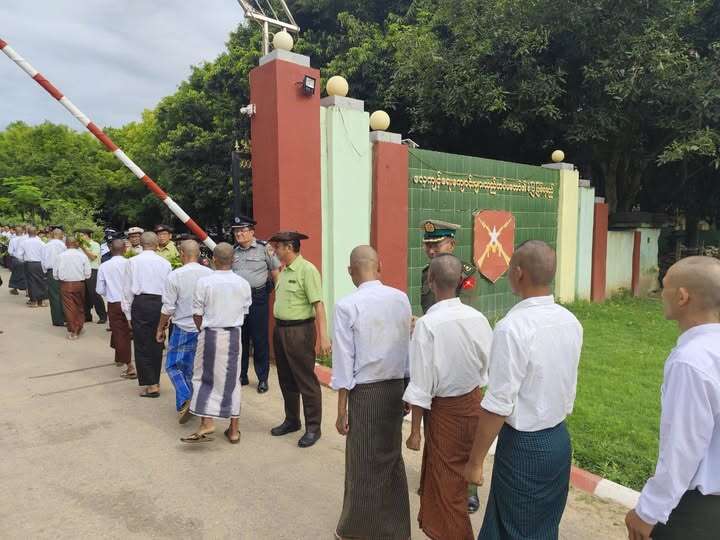
Local residents report that the military forces have forcibly taken four young people as porters in Longlone Township, Tanintharyi Region. On the morning of September 15, military personnel stationed in Longlone town raided nearby Thabya village and arrested four young people. During the raid, the military also searched civilian homes and confiscated mobile phones from residents. The military forces, which regularly patrol the entrances and exits of Longlone town, took the arrested individuals to the town center, and there has been no contact with them since their arrest.
Similarly, in Salin Township of Magway Region, the military has forcibly conscripted four civilians, including a bus conductor, as porters. On September 10, around 11 PM, military personnel hiding near Taungyonpinkan village’s canal road in Salin Township arrested three civilians from Kanpya village. Additionally, at around 8 AM the same day, they arrested Ko Su Wei, a conductor from the Shwe Pyae Hein bus line operating on the Yangon-Magway-Minbu-Salin-Sinphyukyun route, at the Letme Kan checkpoint. Ko Su Wei was only released in the evening after paying a ransom.
In Salin Township, the military is systematically arresting young people to serve as porters and extorting money from their families. Those unable to pay are being sent to military training schools. On September 6, the military also arrested one man and two women returning from Yangon on the Myothauk Yaingni passenger bus service operating between Yangon, Salin, and Sinphyukyun. These forced conscriptions have created an atmosphere of fear among local residents and made travel increasingly difficult for civilians.
The military’s ongoing campaign of forced conscription and extortion has severely impacted daily life in these regions. Local residents are living in constant fear of arbitrary arrest and forced labor. The practice of demanding ransoms for release has created additional financial burdens on families already struggling under current conditions. The military’s actions have particularly affected public transportation routes, with passengers and transport workers facing increased risks of detention and conscription at military checkpoints. These systematic human rights violations continue to demonstrate the military’s oppressive tactics against civilians in these regions.



